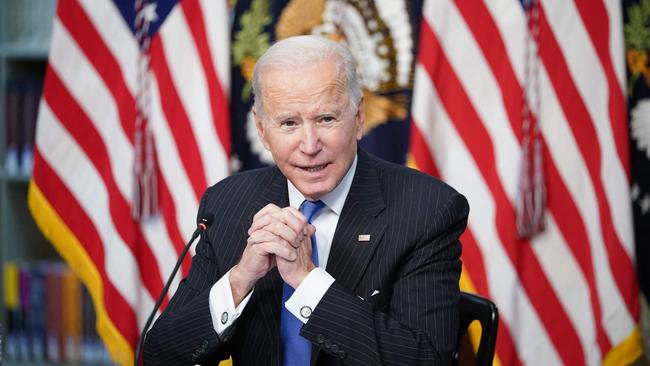Asia split in Joe Biden’s democracy summit
Joe Biden has snubbed two-thirds of ASEAN’s for next week’s Summit For Democracy.

The Philippines, Indonesia and Malaysia are in but Singapore and Thailand are out. India and Pakistan made the cut but not Bangladesh or Sri Lanka, South Asia’s oldest democracy.
The jury is still out on whether the invitation list for US President Joe Biden’s Summit for Democracy is either a bold – if hopelessly uneven – call-out of some of the region’s Potemkin democracies or a self-defeating grenade lobbed in the midst of the White House’s own Indo-Pacific step-up.
The Rand Corporation’s Derek Grossman appeared in no doubt this week when he warned that “splitting Indo-Pacific in this arbitrary way will probably only yield angst and frustration among much-needed allies & partners”, and that the administration “basically blew up (its) Indo-Pacific strategy overnight” by doing so.
Fresh from telling Southeast Asian allies and partners that the US-ASEAN relationship was vital to a free and open Indo-Pacific and a key priority for his administration, Mr Biden has snubbed two-thirds of its members for the summit on December 9 and 10.
Critics have suggested regional dynamics and broader US strategic interests might have been as vital in determining who was invited as a country’s democratic credentials – hence important US allies Pakistan and the Philippines made the list despite endemic corruption and human rights abuses.
Yet Singapore and Thailand – respectively one of America’s closest regional security partners and one of its oldest regional allies, notwithstanding their deeply-flawed democracies – have been excluded alongside one-party-state Cambodia, communist Vietnam and Laos, the kingdom of Brunei and the murderous Myanmar junta.
Lowy Institute Southeast Asia program director Ben Bland said the invitation list had exposed inherent tensions in US efforts to build a broad-balancing coalition against China while also framing competition with Beijing in ideological terms. “The Biden administration seems to have picked some states because of their genuine commitment to democracy while others appear to be there more because of their strategic relevance,” he said.
“The fact that only three ASEAN members are invited shows that pitching competition with China as a grand battle between democracy and authoritarianism will not get Washington very far in Southeast Asia.”
Singapore’s omission looks particularly bad, though some have suggested it may have been at Prime Minister Lee Hsien Loong’s request.
The Singaporean leader has previously said the city state would not be drawn into Mr Biden’s “cold war-style” proposed coalition of democracies. Taiwan’s inclusion would also make attendance awkward for Singapore, which continually emphasises the need to balance the competing demands of US and China.
Singapore political scientist Ja-Ian Chong agreed the optics were not good, given Singapore officially claimed to be a democracy, despite its long history of essentially one-party rule.
“The speculation is either Singapore knew it wasn’t going to be invited (so said it didn’t want to attend), or it didn’t want to be seen to be too close to Washington, which could be viewed as a slight to Beijing,” Dr Chong said. Either way it was unlikely to make much difference to the relationship.
“On one hand it runs against some of the narratives Singapore likes to put forward but on the other, substantively it doesn’t make much difference because Singapore has lots of channels for co-operation with the US,” he said.
The White House has also managed to offend the Indonesians by scheduling its summit on the same day as the Bali Democracy Forum, a broader church that annually brings dozens of nations together to discuss democratic development.
Southeast Asia is not the only place where eyebrows are being raised, given India and Pakistan were invited at the expense of Bangladesh and Sri Lanka – two countries now being wooed by Beijing – despite India’s democratic slide under Prime Minister Narendra Modi and Pakistan Prime Minister Imran Khan’s military-backed administration.
The US State Department has said the summit was “embracing a big tent with a clear-eyed recognition that no democracy is perfect”. “In the long run, we seek to engage any and all countries that show a genuine willingness in making commitments that support the summit’s goals.”




To join the conversation, please log in. Don't have an account? Register
Join the conversation, you are commenting as Logout